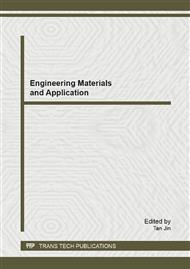p.668
p.673
p.678
p.684
p.688
p.694
p.701
p.706
p.710
Using CFD Couple with Visual Basic to Investigate the Thermal Behavior for Fuel Rod Bowing Problem
Abstract:
Nuclear fuel elements assemblies are generally consists of fuel rod bundles; each bundle is a concentric cylinder with three layers. Taking GE-8X8 for example, there is pellet, gap, and cladding from inside to outside. The diameter for each concentric cylinder is 9.26cm, 9.47cm, and 10.71cm respectively. In reality, a structure deformation may happen to those components due to the reason of radiation result in the high temperature of the bundles system. For the space of gap decreases by the expansion of pellet, the thermal conductivity might be under predicted and there is not enough study about this topic yet. To improve the accuracy of PRAs, more studies of the shrink phenomena on the gap between pellet and cladding are necessary. In this study, we had developed a program on the purpose of processes improvement for CFD simulation about spent fuel dry storage system. The program can adjust the dimension for each part of formation very friendly. We think it can also do some help on the needs if we want to compare the performance on heat transfer for different fraction on each part of bundle. In addition, the axial power distributions of the rod were also defined file by the user very easy, the results shown no obviously temperature difference between the full gap and 90% reduction of the gap.
Info:
Periodical:
Pages:
688-693
DOI:
Citation:
Online since:
January 2013
Authors:
Price:
Сopyright:
© 2013 Trans Tech Publications Ltd. All Rights Reserved
Share:
Citation:


